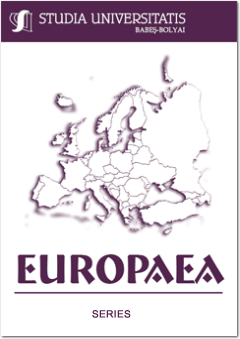COMMUNAUTES EPISTEMIQUES ET INTERDISCIPLINARITE : LA GESTION DES CRISES ASSOCIEES AUX ALEAS TELLURIQUES, ENTRE SCIENCES DE LA TERRE ET SCIENCES POLITIQUES
INTERDISCIPLINARITY AND EPISTEMIC COMMUNITIES: CRISIS MANAGEMENT AND TELLURIC HAZARDS, BETWEEN LIFE SCIENCES AND POLITICAL SCIENCE
Author(s): Maud H. Devès, Thomas RibémontSubject(s): Politics / Political Sciences, Civil Society, Governance, Culture and social structure , State/Government and Education, Management and complex organizations, Studies in violence and power, Nationalism Studies, Ethnic Minorities Studies, Globalization, Geopolitics, Identity of Collectives, Corruption - Transparency - Anti-Corruption
Published by: Studia Universitatis Babes-Bolyai
Keywords: interdisciplinarity; crises management; hazards; epistemology; probability;
Summary/Abstract: In an interdisciplinary perspective, between earth sciences and political sciences the present article shows that the concept of epistemic communities, frequently used by political scientists specializing in the sociology of public policy, says very little about the inner workings of the scientific field. This article shows that the concept of epistemic community tends to mask the complexity of the situation of expertise to highlight this point, we chose to study three cases of crisis management associated with the same type of hazard, of volcanic origin, which reveal the difficulties related to various levels of interdisciplinarity. The first crisis studied here is related to the eruption of La Soufrière volcano on Guadeloupe in 1976. This event gives a picture of various epistemological positions within the same discipline, i.e. the earth sciences of the Earth, and illustrates their possible consequences in the public sphere. The second crisis is related to the eruption of the Soufrière Hills Volcano on Montserrat (1995 and ongoing). Although the experts are again drawn from the earth sciences, they represent different specialities. We find that the experts knew how to make use of probabilistic tools to overcome the difficulties related to uncertainties inherent in the crisis and, beyond that, arising from the incompleteness of their knowledge. Lastly, we discuss the crisis related to the eruption of the Icelandic volcano Eyjafjallajökull in 2010. In this last case, the composite nature of the hazard required us to call upon experts from two different disciplines: the earth sciences and atmospheric sciences. Specialization appears here as a factor of vulnerability. Indeed, the crisis confronts the experts with a mismatch between their approaches and makes it difficult to develop an opinion that fully benefits from their different types of expertise.
Journal: Studia Universitatis Babes-Bolyai - Studia Europaea
- Issue Year: 63/2018
- Issue No: 2
- Page Range: 133-150
- Page Count: 18
- Language: French

